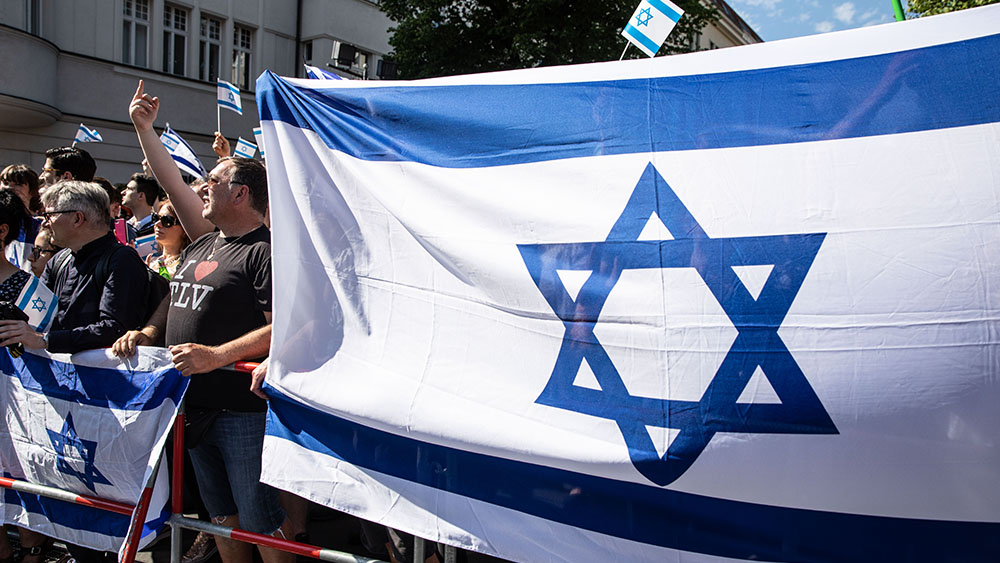
- The House of Representatives passed the Illegitimate Court Counteraction Act, a bill targeting the International Criminal Court (ICC) for issuing an arrest warrant for Israeli Prime Minister Benjamin Netanyahu.
- The legislation received bipartisan support, with 243 votes in favor, 140 against and one abstention, and would impose visa and property-blocking sanctions on ICC personnel involved in investigations or arrests of Americans and their allies.
- The bill's primary sponsor, Rep. Brian Mast, highlighted the urgency of the matter, stating that the ICC's actions are a threat to US allies and the rule of law.
- The legislation's prospects in the Senate remain uncertain, but Senate Majority Leader John Thune has expressed readiness to bring the bill to the floor "soon."
- The ICC issued an arrest warrant for Netanyahu and his advisor Eyal Gallant on charges of war crimes and crimes against humanity, accusing them of intentionally depriving the Gaza civilian population of essential supplies during Israel's ongoing assault on Gaza.
The House of Representatives has passed its first major foreign policy bill of the 119th Congressional session, targeting the International Criminal Court (ICC) for issuing an arrest warrant for Israeli Prime Minister Benjamin Netanyahu.
The bill, titled the Illegitimate Court Counteraction Act, was passed with a vote of 243-140-1 and has drawn bipartisan support, with 45 Democrats joining their Republican colleagues in backing the legislation.
Under the proposed legislation, the U.S. would impose "visa- and property-blocking sanctions against the foreign persons that engaged in or materially assisted" in an investigation or arrest of Americans and their allies who are not party to the Rome Statute, which established the ICC. The bill also mandates that the president apply visa-blocking sanctions to the immediate family members of those sanctioned.
The bill's primary sponsor, Rep. Brian Mast, emphasized the urgency of the matter, stating that the ICC's actions are a threat to U.S. allies and the rule of law. Mast, who is also the newly elected chair of the House Foreign Affairs Committee and the only known member of Congress to have served in the Israeli military, wore his Israeli army uniform on Capitol Hill following the Oct. 7, 2023 Hamas-led attack on southern Israel.
House Speaker Mike Johnson stated that the bill aims to put ICC prosecutor Karim Khan "back in his place," referring to Khan's role in requesting the warrants for Netanyahu, former Israeli Defense Minister Yoav Gallant, and three deceased senior Hamas leaders.
The bill's prospects in the Senate remain uncertain, with the need for up to 60 votes to overcome the filibuster rule. However, Senate Majority Leader John Thune has expressed readiness to bring the bill to the floor "soon."
If passed, the Illegitimate Court Counteraction Act would take effect within 60 days and could significantly impact the ICC's ability to investigate and prosecute individuals from the U.S. and its allies. The bill's passage highlights the ongoing tension between the U.S. and international bodies, particularly over issues of sovereignty and the application of international law.
ICC accuses Netanyahu and Gallant of war crimes and crimes against humanity
The ICC's warrant, issued in November, accuses Netanyahu and his advisor, Eyal Gallant, of war crimes and crimes against humanity during Israel's ongoing assault on Gaza. The charges stem from the alleged use of starvation as a method of warfare and the commission of crimes against humanity, including murder, persecution and other inhumane acts.
According to the ICC's Pre-Trial Chamber I, Netanyahu and Gallant are believed to have intentionally deprived the civilian population in Gaza of essential supplies, including food, water, medicine, medical supplies, fuel and electricity. The court's statement highlighted the severe limitations on medical supplies, which led to doctors being forced to perform amputations without anesthetics and to sedate patients through unsafe means. (Related: ICC arrest warrants show that Israel is swiftly becoming a 'pariah state.')
The ICC found that these actions amounted to "the crime against humanity of other inhumane acts," as well as the crime against humanity of persecution, as the Palestinian population was targeted based on political and national grounds. The arrest warrants were issued following an investigation that uncovered evidence of systematic efforts to deprive the civilian population in Gaza of their fundamental rights to life and health. The court found reasonable grounds to believe that the two Israelis had knowingly and intentionally carried out these acts.
"This finding is based on the role of Mr. Netanyahu and Mr. Gallant in impeding humanitarian aid in violation of international humanitarian law and their failure to facilitate relief by all means at its disposal. The chamber therefore found reasonable grounds to believe that Mr. Netanyahu and Mr. Gallant bear criminal responsibility for the war crime of starvation as a method of warfare," the court said.
Under the Rome Statute, the treaty that established the ICC, all 124 member states are now legally obligated to arrest Netanyahu and Gallant and transfer them to the court's custody. However, the ICC does not have its own enforcement powers, and a trial cannot commence in absentia.
Read more stories like this at IsraelCollapse.com.
Watch this clip from "Palestine Deep Dive" as journalist Ahmed Alnaouq speaks with international law expert Tayab Ali regarding how the ICC's arrest warrants for Netanyahu and Gallant could lead to "the most significant international humanitarian law ruling in human history."
This video is from the alltheworldsastage channel on Brighteon.com.
More related stories:
ICC arrest warrants: What are Netanyahu and Gallant accused of?
ICC arrest warrants: The US must distance itself from an increasingly toxic Israel.
ICC prosecutor calls for Netanyahu's immediate arrest: "We need to apply the law."
ICC issues statement outlining arrest warrants for Israel’s alleged war crimes in Gaza.
Sources include:
Please contact us for more information.




















